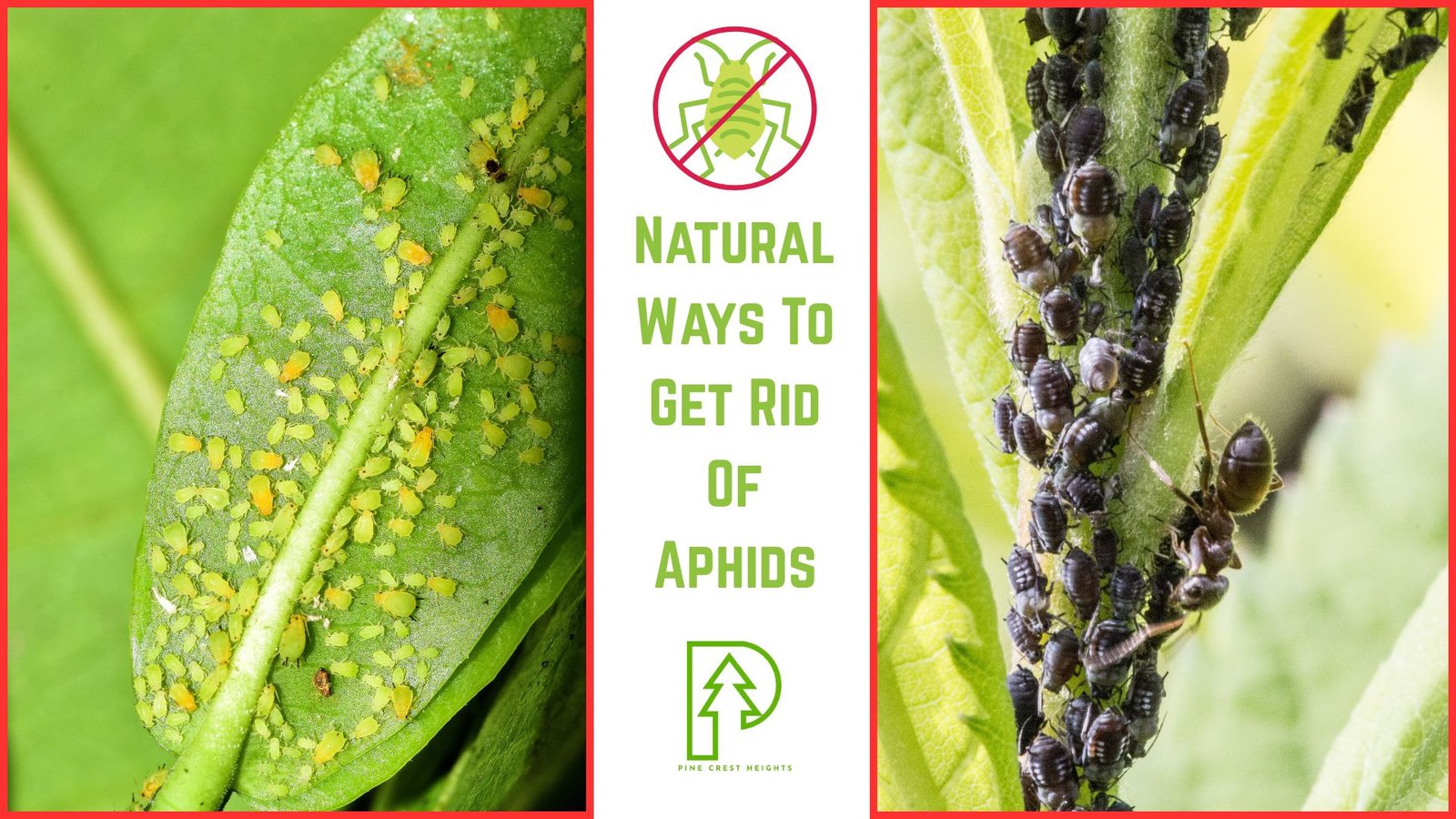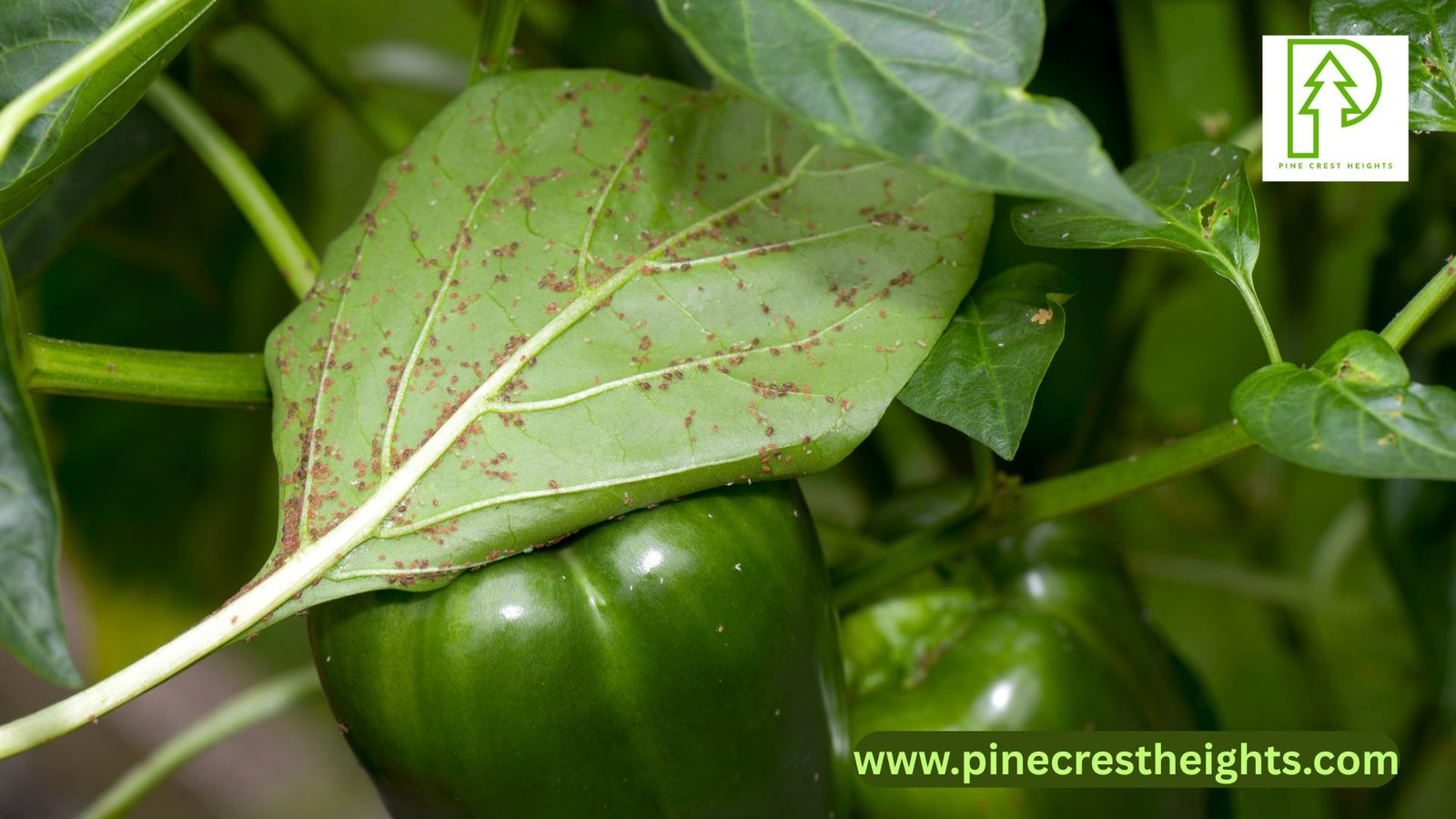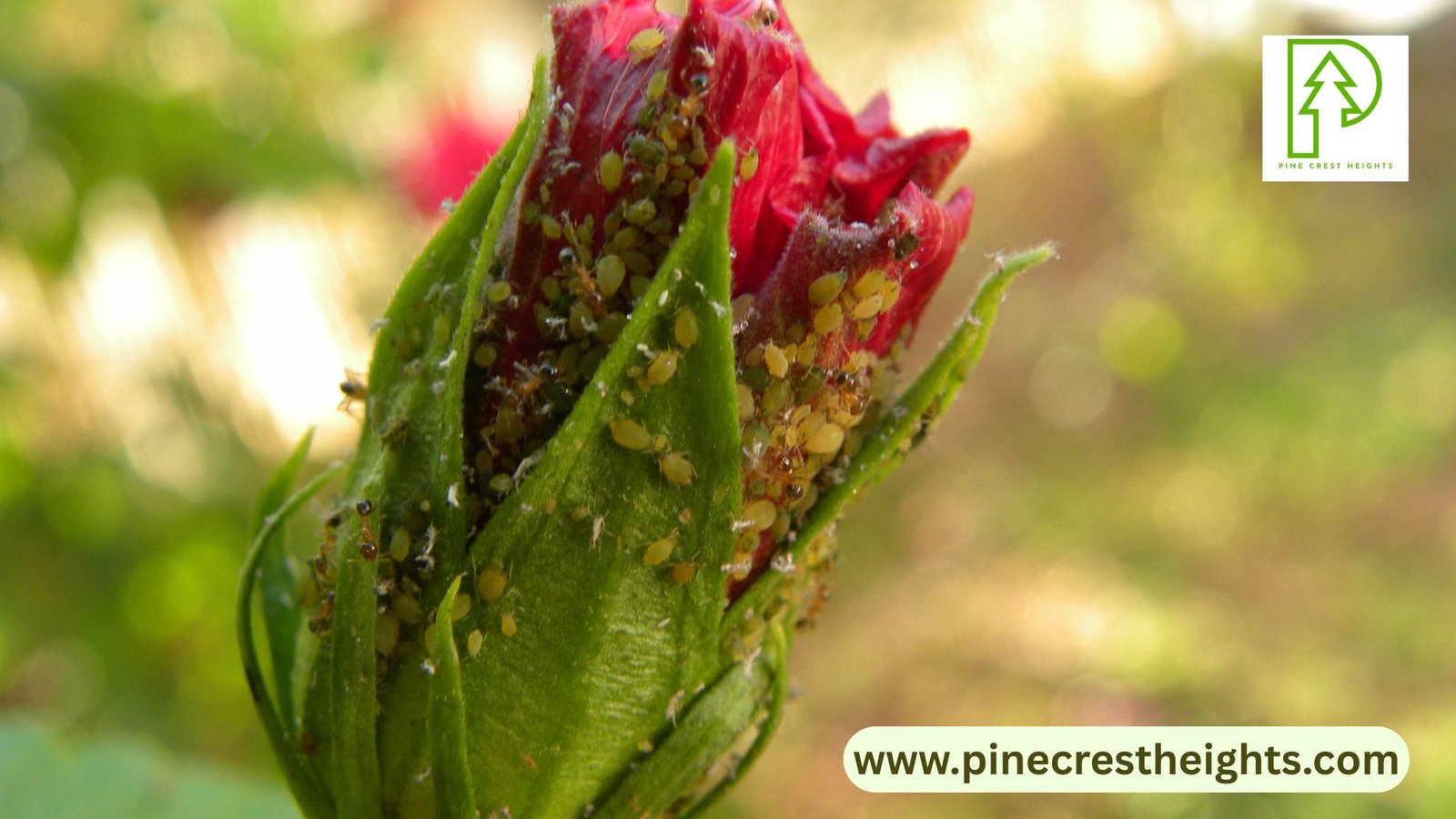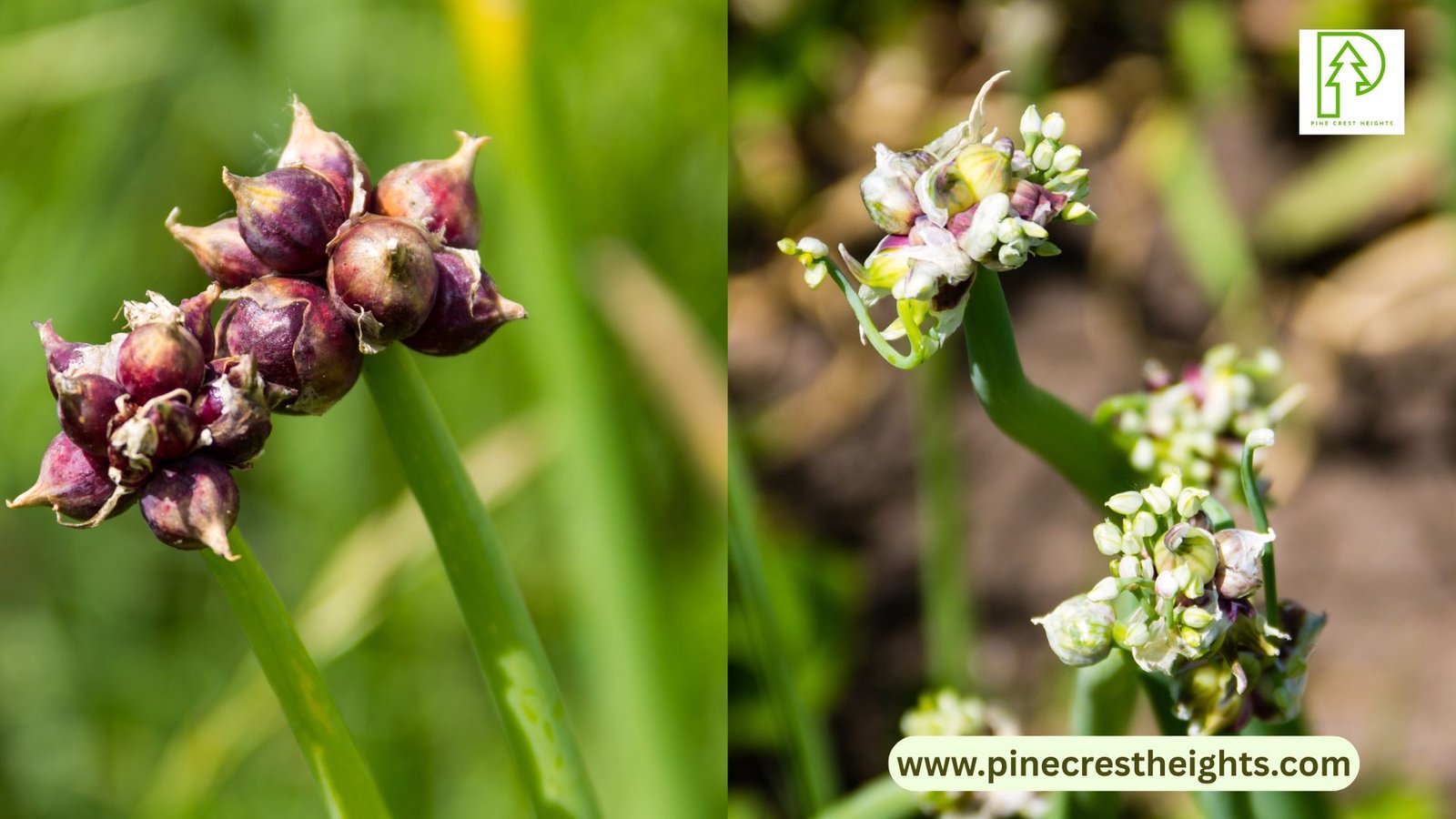
Suppose you toiled hard to grow your vegetables such as tomatoes, peppers, lettuce, cabbages, or beans or you were expecting to see the flamboyant beauty of roses, marigolds, chrysanthemums, or dahlias in your rooftop garden. Still, to your dismay, you discovered that the leaves of your vegetables and flowers were turning yellow or you noticed a sticky honeydew-like substance in those leaves, you needed to be sure that aphids were about to wreak havoc in your flowers and vegetables.
Aphids are seemingly harmless small, soft-bodied insects. They come in various colors, including green, black, brown, and woolly white. But don’t let their appearance fool you as they can destroy your plants by sucking sap, stunning growth, and spreading diseases.
Although I cannot call myself a garden geek, I have been growing vegetables and flowers in my yard and rooftop garden for over 10 years. Therefore, I have encountered several aphid attacks on my cherished vegetables and flowers. To counter this, I have resorted to natural and organic methods. Moreover, recently, I have found a way to eliminate aphids permanently.
Here, I present a step-by-step guide to help you eliminate aphids effectively from your beloved plants.
Myths About Aphid Control:
People get confused about controlling aphid infestation in their gardens because they come across plenty of misinformation. I have seen gardeners asking” will vinegar kill aphids?”.It is true that vinegar can kill aphids but it also can harm your plants. They often wonder” Do coffee grounds repel aphids?”.
The answer to this question is coffee grounds are partially effective. Finally,” is garlic spray effective for all plants?”.Depending on the type of the plant and the severity of the infestation, its success varies.
Identifying Aphids And Their Impact On Gardens:
By now, you are familiar with aphids. However, you need to know that there are over 4000 species of aphids, each with their own unique appearance and feeding habits.
Although there are over 4000 species of aphids, green aphids, black aphids, red aphids, cabbage aphids, woolly aphids, and root aphids are commonly found in gardens. There are some species that are more damaging than others.
One of the significant traits of aphids is that they reproduce quickly. They feed on the phloem of plants that cause yellowish or curled leaves, and stunted growths. What is more, they transmit plant viruses that can significantly harm your garden. It is necessary on our part to understand the aphid life cycle and when they are most active. They become proactive in warm temperatures. They possess overwintering habits that allow them to survive in colder months.
Signs Of An Aphid Infestation:
Aphids are significantly small and hence they are often difficult to spot. However, numerous signs can help you understand their presence. Aphids always remain in large groups and if you spot clusters of small, soft-bodied insects, you need to be sure that these are aphids. Please check closely.
Moreover, damaged plants, sticky, shiny leaves, and yellowed or curled leaves are the signs of aphids infestation in your garden.
Best Natural Ways To Eliminate Aphids:
I have already clarified that aphids are small, seemingly harmless insects that can unleash destruction on your beloved flowers and plants. Based on my experience I have found the following ways to get rid of aphids naturally:
Using Natural Essential Oils: When I could trace the early aphid infestations in my flowers or vegetables, I took a bottle full of water and mixed a few drops of essential oils like peppermint, clove, or rosemary and a bit of mild soap. After that, I sprayed the solution directly on the infested plants to get rid of these vermin. Thus, without harming my garden I could easily repel them.
Dish Soap As Aphids Repellent:
To get rid of aphids naturally, mix a few drops of mild dish soap with water in a spray bottle (about 1–2 teaspoons per liter). Spray the solution directly on the affected plants—this suffocates the aphids without harming the plant. Repeat every few days as needed.
I have also used dish soap as aphid repellent. It worked perfectly fine. What did I do- I mixed a few drops of mild dish soap with water in a spray bottle (about 1-2 teaspoons per liter). Then I sprayed the solution directly on the affected plants. Therefore, my homemade solution suffocated the aphids without harming my beautiful-looking plants. In addition, I repeated the process every few days to get the best results.

How To Get Rid Of Aphids With Diatomaceous Earth:
I always prefer natural methods and natural materials to harmful chemicals for eliminating aphids from my plants. Therefore, I recommend the same. I found diatomaceous earth (DE) to be an effective and natural way to get rid of aphids. Several varieties of diatomaceous earth are used for different purposes such as pool filtration. These types of DE are not safe for gardens. You must make sure that you are using food-grade diatomaceous earth.
I prefer using DE on a dry day because I know very well that moisture reduces DE’s effectiveness. I always lightly dust the affected plants, making sure to cover both the tops and undersides of the leaves, as aphids often hide underneath. After that, I sprinkle some around the base of the plants to catch any crawling pests.
How To Get Rid Of Aphids With Baking Soda:
I have successfully used baking soda as an effective natural remedy to help control aphids in my small yet beautiful garden. To use it, I mixed about one teaspoon of baking soda with a few drops of mild liquid soap in a liter of water.
I used the soap with the baking soda because the soap helped the mixture stick to the leaves and insects. Firstly, I poured the solution into a spray bottle and sprayed it directly onto the affected plants. Furthermore, I made sure to cover both the tops and undersides of the leaves where aphids often hide.
Here I want to share an extra tip for my fellow gardeners- please spray this solution early in the morning or late afternoon to avoid leaf burn from the sun.
How To Get Rid Of Aphids Using Banana Peels:
Can you imagine banana peels, a simple and eco-friendly, material that can help you to get rid of aphid infestation in your garden? Yes it is possible to drive away aphids permanently from your garden using banana peels.
Aphids are irritated by the natural compounds found in banana peels, and using them can deter these pests from infesting your plants.
I cut banana peels into small pieces and buried them a few inches into the soil around the base of the affected plants. Quite naturally, these banana peels started to decompose and they released nutrients into the soil and helped to repel aphids naturally.

Best Companion Plants For Repelling Aphids Naturally:
If you have decorated your garden in your yard, you have the option to outsmart aphids with the help of nature. Several companion plants can keep aphids away without using chemicals. I have planted several companion plants which helped a lot to check aphids’ infestation in my garden. Here I share with you:
Marigolds: I have seen that marigolds work as great aphid deterrents. Its leaves as well as its flowers emit a strong scent that confuses and repels aphids. Moreover, marigolds attract beneficial insects like ladybugs that prey on aphids.
Garlic: Garlic works similarly to marigolds. You can plant garlic around the borders of your vegetable gardens to create a natural barrier against these pests.
Chives: You can consider planting chives because it not only enhance your dishes but also repel aphids with their mild onion-like scent.
Catnip: There is a compound called nepetalactone in catnip which acts natural aphid repellent. In addition, it acts as a flea beetle and squash bugs deterrent.
Basil: If you plan to plant basil near tomatoes, its aromatic leaves will help you keep aphids at bay.
Barring all the plants I mentioned above, you can consider the following plants that are beneficial for keeping away aphids from your beloved vegetables.
Lavender
Cilantro (Coriander)
Mint
Dill
Nasturtiums
Do coffee grounds get rid of aphids?:
Although coffee grounds have a strong smell and some gardeners think that they can repel or kill aphids, this is partially true. The strong smell of Coffee grounds is not as effective as the other solutions I mentioned above.
How to get rid of aphids naturally using Epsom salt: Compared to coffee grounds, I found Epsom salt to be more effective as an aphid repellent. Although it does not kill aphids directly, its magnesium sulfate property strengthens plants by providing essential nutrients that make them more resilient against pests.
To use Epsom salt as a deterrent, I generally dissolve one tablespoon of Epsom salt in a gallon of water and spray it onto the affected plants. It not only discourages aphids from settling on my plants but it also promotes healthy foliage. I always advise my fellow gardeners not to sprinkle excessive salt because it will then damage plants roots.
How to kill aphid eggs naturally: If you don’t want to take any tricky method from the beginning, you can consider using a strong blast of water from a garden hose to physically dislodge aphid eggs from the undersides of leaves.
In addition, you can spray neem oil or insecticidal soap mixed with water. Moreover, introducing beneficial insects like ladybugs, lacewings, and parasitic wasps is another excellent strategy to keep the population of aphids in check.
How to get rid of woolly aphids naturally: Among the varieties of aphids I found woolly aphids to be very stubborn garden pests. Hence, I use a combination of safe methods to get rid of these. I start by spraying the affected plants with a strong stream of water to knock off the woolly aphids and remove their protective waxy coating. Next, I apply either a natural insecticidal soap or neem oil directly onto the remaining insects.
How to get rid of aphids using milk spray: I have also experimented with milk spray to control aphids in my garden. Therefore, I found it to be very useful. To make the spray, I simply mixed one part of milk with two parts of water in a spray bottle. Then I sprayed this mixture directly onto the affected plants. I usually apply this mixture early in the morning to avoid leaf burn from the sun.
Does hydrogen peroxide kill aphids? The simple answer is “yes”. If you use hydrogen peroxide in a diluted solution form, it can help kill aphids.
How to use flour to get rid of aphids: When I learned that flour could repel aphids from my garden, I was surprised. I started to dust my plants with plain all-purpose flour; it clogged the mouths of the aphids making it difficult for them to feed on the plant sap.
Preventing Future Infestations:
As the proverb goes” prevention is better than cure”, begin by focusing on the importance of healthy soil and compost because a well-nourished plant is naturally more pests-resistant. Use mulching methods to deter aphids. In addition, prune your plants regularly. Finally, try attracting aphid predators like birds, ladybugs, and lacewings.

Hi, I’m Arpan Kundu Chowdhury, the creator of Pinecrest Heights! Gardening has always been my passion — there’s something deeply satisfying about watching plants grow, nurturing them, and finding natural solutions to everyday gardening problems. I created this website to share my knowledge and personal experiences with gardening and outdoor maintenance.
My goal is to make gardening accessible to everyone, whether starting your first container garden or managing a full backyard oasis. Through Pinecrest Heights, I bring you practical advice on plant care, pest control, garden tools, and much more. I’m constantly exploring new methods, trying out tools, and learning about plants so I can share the best tips and tricks with you.
When I’m not writing or working in the garden, you’ll find me researching the latest in sustainable gardening and eco-friendly living. I hope my articles help you create a garden you love!
Let’s dig in and grow together!





